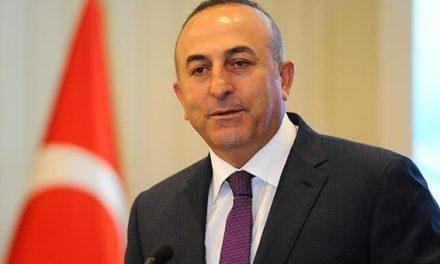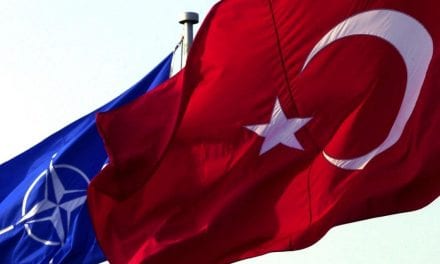Andrew Mayeda & Simon Kennedy, Bloomberg
Christine Lagarde has played multiple parts in Greece’s debt saga. Now she’s prepping for her defining role.
At the outset more than five years ago, she was France’s finance minister, exhorting Greece to play by the euro area’s rules. With the rulebook in tatters, Lagarde, now managing director of the International Monetary Fund, has taken on the delicate task of urging the principal antagonists to drop entrenched positions to prevent a default. Her condition: The numbers must add up to a sustainable path for Europe’s most indebted nation, or the IMF won’t sign off.
At stake is not just the future of the currency union but the Washington-based lender’s own credibility. Owed $1.7 billion at the end of this month from the government in Athens, Lagarde wants Greece to adjust its sales-tax and pension systems, and Europe to relieve the nation’s debt burden by delaying repayment on billions in loans.
“The IMF has the same problems as the Germans, which is that if you cave in to the Greeks, you’re telling everyone else there are no rules,” said Desmond Lachman, a former IMF official who’s now a resident fellow at the American Enterprise Institute in Washington. “She’s firmly in charge of the IMF, so she will have to bear some responsibility.”
Greece’s relapse into crisis after returning to international markets last year is giving the IMF another chance after missteps in its initial bailout of the country in 2010. In offering $38 billion to Greece, the fund bent its own lending rules, concerned that a default would have dire effects on the global financial system. A 2013 internal reviewconcluded the fund should have pushed earlier for a restructuring of Greek debt.
Sex Scandal
Those mistakes were made under Dominique Strauss-Kahn, whose resignation as managing director amid a sex scandal led Lagarde to be named the first woman to lead the IMF in July 2011.
Restoring stability and removing the IMF from the gossip pages were her first order of duty and since then, the former partner at U.S. law-firm Baker & McKenzie and onetime synchronized-swimmer sought to chart a new path through new potholes.
She has pushed the lender into the unfamiliar research territory of climate change, gender diversity and income inequality. The fund’s research division has eased its past calls for austerity and criticism of capital controls.
One of her major challenges has been charming emerging markets frustrated over the stalled reshaping of the fund to account for changes in the world economy. The U.S. Congress is refusing to ratify the plan to give the likes of China and India more say at the IMF, leading China to forge new institutions such as an Asian infrastructure bank.
Economic Celebrity
In a world of buttoned-down, mostly male economic-policy makers, Lagarde’s charisma and knack for pithy quotes has made her a celebrity.
“I find her to be one of the most technocratic, savvy, honest and high-integrity leaders I’ve met,” said Ian Bremmer, president of Eurasia Group, a political-risk research and consulting firm in New York, who counts her as a friend. “The IMF is incredibly lucky to have her.”
Now Lagarde’s biggest test lies in Athens, where failure to broker a compromise risks forcing her to decide between relaxing the fund’s lending standards again or allowing Greece to spin out of the euro. Greek Prime Minister Alexis Tsipras is unlikely to have won support with Tuesday’s accusation that the IMF has “criminal” responsibility for his country’s plight after imposing austerity in return for aid.
Leader’s Toughness
“She certainly has the toughness to deny them further funds,” said Jacob Funk Kirkegaard, a senior fellow at the Peterson Institute for International Economics in Washington. “If she were somehow to blink against what is now a remarkably recalcitrant government,” it would undermine her leadership.
Greece must find the $1.7 billion it owes the fund by June 30, the same day the nation’s bailout from Europe expires. Lagarde’s chief spokesman, Gerry Rice, announced last week that the IMF had pulled its negotiating team out, saying no progress was being made lately in talks with the Greeks.
Summing up the IMF’s position, chief economist Olivier Blanchard on Sunday called on both Greece and its European creditors to compromise. While Greece needs to make changes to its sales tax and pension system, euro-area countries need to provide “significant” new financing and debt relief, he said in a blog post on the IMF website.
There may be more clues to Lagarde’s stance this week. She’s scheduled to attend a meeting of euro-area finance ministers in Luxembourg on Thursday. She avoided the topic of Greece in a speech late Wednesday in Brussels, where she called for a reduction in inequality of wealth and income.
Asked by reporters afterward if she would answer any questions on Greece or Thursday’s meeting, Lagarde responded: “No, I’m not answering questions — we’re working.”
Deadbeat Countries
The stakes are high. If Greece misses a payment to the IMF, it would join Zimbabwe, Sudan and Somalia as countries currently in arrears to the fund. That could prompt the European Central Bank to restrict or discontinue access to emergency liquidity for Greek banks, plunging the nation’s financial system into crisis.
Still, relaxing its standards again may hurt the fund’s standing among those of its 188 member nations who are less invested in keeping Greece afloat, especially those which met the IMF’s terms when they were rescued in the past.
“The IMF stands the risk of being accused of pushing Greece off the cliff through its uncompromising stance, but it is in fact simply forcing all parties to the negotiations to recognize some difficult but inescapable economic realities,” said Eswar Prasad, who worked for the IMF before becoming a professor at Cornell University in Ithaca, New York.
Lagarde herself acknowledges that getting to a deal isn’t simple.
“It has to be a comprehensive approach and, as I said in other places, it cannot be a quick and dirty job,” she said in May. “The IMF is not known for doing that.”



















